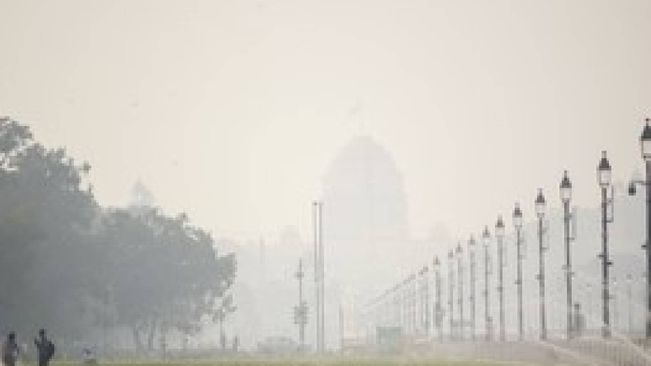This marks the seventh consecutive day of heavy smog blanketing the National Capital Region (NCR), raising alarm over public health risks.
Data from the Central Pollution Control Board (CPCB) highlighted that areas like Anand Vihar, Ashok Vihar, Bawana, Jahangirpuri, and Major Dhyan Chand Stadium in Delhi recorded AQI levels of 500 by 5 a.m., underscoring the severity of the situation.
The toxic air quality has been attributed to adverse weather conditions and widespread stubble burning in neighbouring states.
Terming the situation a "medical emergency," the Delhi government urged institutions to adopt urgent measures to safeguard public health. As a precaution, several schools and colleges across the NCR have switched to online classes, with in-person attendance suspended for students in Classes 10 and 12 until further notice.
Delhi University and Jawaharlal Nehru University (JNU) have also decided to suspend physical classes and hold classes online till November 22.
Amid the deteriorating air quality, the Supreme Court has stepped in, directing all states in the Delhi-NCR region to immediately establish enforcement teams to strictly implement the anti-pollution Graded Response Action Plan (GRAP) in its highest level, Stage 4. The court emphasised the constitutional obligation of states to ensure a pollution-free environment for all citizens and declared that the restrictions would remain in force until further orders.
Under the GRAP Stage 4 restrictions which are in place in Delhi-NCR, no trucks are allowed into Delhi except those carrying essential items or using clean fuel (LNG/CNG/BS-VI diesel/electric). Non-essential light commercial vehicles registered outside Delhi are also prohibited, except for EVs, CNG and BS-VI diesel ones. All construction activities, including highways, roads, flyovers, power lines, pipelines and other public projects, are suspended.
On Monday, Delhi Lieutenant Governor V.K. Saxena launched the DDA’s anti-smog misting drive and inspected a trial run in Dwarka.
“In light of the severe air quality index readings in Delhi, it is crucial that we adopt innovative and sustainable measures to protect the health and well-being of our residents,” said L-G Saxena during the inauguration ceremony.
“This anti-smog misting system is a significant step forward in our ongoing efforts to mitigate pollution and create a healthier living environment for all,” he said.
According to the CPCB, an AQI between 0 and 50 is considered 'good', 51 and 100 'satisfactory', 101 and 200 'moderate', 201 and 300 'poor', 301 and 400 'very poor', 401 and 450 'severe', and above 450 'severe plus'.
--IANS
rs/dpb















